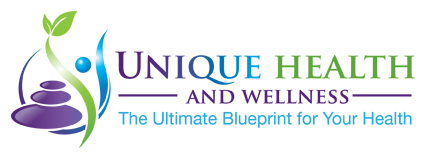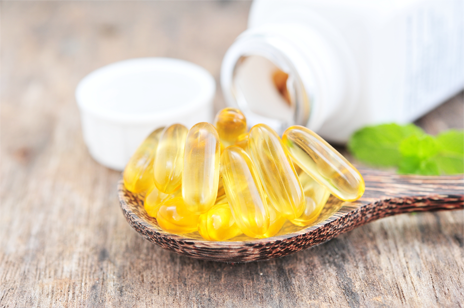Vitamin D Deficiency- The Global Epidemic
The importance of vitamin D cannot be underestimated.
Particularly since vitamin D deficiency is one of the world’s major health problems today.
It is estimated that more than half of the world’s population is vitamin D deficient, the main cause being insufficient sunshine.
This is why vitamin D is often called the ‘sunshine vitamin’.
Vitamin D is a fat-soluble vitamin that is essential for the absorption of calcium and phosphorus in the body.
Vitamin D is important for the growth and maintenance of healthy bones.
It is also necessary for maintaining normal blood sugar, immune health and mental well-being.[1]
There are two forms of vitamin D: vitamin D2 and vitamin D3.
Both offer health benefits, but it is D3 that offers the most as it is more readily absorbed and utilized by the human body.
Vitamin D2
Also known as ergocalciferol, vitamin D2 is produced by plants, such as mushrooms, in response to UV radiation from sunlight.
It is also found in most cow dairy products too, but it is sometimes added to non-dairy products, such as soy milk and some coconut milks, to boost their nutrient quantities.
Vitamin D3
Vitamin D3, also known as cholecalciferol, is the most biologically active form of vitamin D found in humans and animals.
When the skin is exposed to sunlight, cholesterol in the body is converted into an active form of vitamin D3.
This form of vitamin D is crucial for promoting calcium absorption in the bones.
Cod liver oil is very rich in vitamin D3 and was a common supplement given to children before the 20th century to protect against the bone-weakening disease, rickets. [3]
Research over the past decade has confirmed that vitamin D3 has many health benefits over D2, as it is better absorbed and utilized by the body.
It has been shown that vitamin D3 is around 300% more effective than D2, particularly in winter months, and actually decreases overall mortality. [4],[5],[6]
Vitamin D Sources
Sunlight
Sunlight is the best source of vitamin D.
It is actually an indirect source, as it doesn’t contain vitamin D itself, but promotes the synthesis of vitamin D in the body, mainly by its UVB rays.
Unfortunately, most people spend the majority of the day indoors so their sunlight exposure is limited.
Vitamin D Food Sources

So Which foods contain vitamin D3?
There are many natural and processed foods that contain both synthetic and naturally occurring vitamin D3.[7]
Another reason that the incidence of vitamin D deficiency is soaring is that people these days do not make the time to eat healthily and make sure they have a balanced diet.
Fortified foods that contain notable levels of vitamin D include:
- Cow’s milk
- Cereal
- Grain products
It must be noted that these foods are processed and contain a substantial quantity of additives, preservatives, and if non-organic, pesticides too.
Whole foods with naturally occurring vitamin D include:
- Beef liver
- Fish and fish oils
- Soy
- Egg Yolk
Vitamin D Deficiency
If you avoid the sun or just cannot get out there, you don’t drink milk and follow a vegan diet, chances are you are at risk of being vitamin D deficient.
A serious deficiency can lead to the following health issues:
- weak or deformed bones (rickets, osteoporosis)
- cardiovascular disease
- asthma in children
- dementia
- diabetes
- hypertension
- glucose intolerance
- multiple sclerosis
- high cholesterol
- per-menstrual syndrome
- lupus
- cancer
It has been noted that people with darker skins are at higher risk of vitamin D deficiency, as the melanin in the pigment reduces the skin’s ability to make vitamin D.
Also, as we age, the body becomes gradually less able to convert vitamin D into it’s active state.
We therefore become more prone to vitamin D deficiency with age.
In addition, it has been found that people with digestive problems like celiac disease, liver problems, or Crohn’s Disease are more likely to have low levels vitamin D3.
Vitamin D Deficiency Treatment
There’s only one thing for it: you need to increase levels of vitamin D in your body, either by increasing sunlight exposure, changing diet or taking supplements.
Diet and Sunlight
Changing one’s diet means increasing intake of the foods mentioned above as much as possible, preferably in their organic form.
Also, increasing time spent outdoors is a certain way to increase vitamin D levels.
Start slow and build up to 15 to 20 minutes on front and back.
However never get burnt.
If in the sun for long periods of time . . . slip, slop and slap.
However ensure your sunscreen does not contain any nasty chemicals.
Some scientists say that these natural methods are the safest way to maintain natural vitamin D levels.
 Vitamin D Supplements
Vitamin D Supplements
If you feel, or are advised, that you need supplements, it is important to be well-informed on which supplement to take.
Taking the wrong form of vitamin D can do more harm than good, so make sure you are taking vitamin D3.
Vitamin D3 is definitely the best supplement you can take.
There are many opinions on how much vitamin D the body actually needs to maintain normal levels.
Most people need 100 to 150 ng/ml in their bodies, but the question is what dosage of Vitamin D3 do you need to take to reach this level.
The most important factor when considering dosage is the person’s body weight.
As a generic guideline, adults need to take a dosage of about 70-80 IU’s per day per kg of body weight to reach this level.
In other words, an average sized person will need about 4000-5000 IUs per day.
Liquid form is best.
It could take over 3 months to get to these levels if you are deficient.[9]
Making conscious changes to your diet and lifestyle will start you on the path of increased Vitamin D levels, which may improve your overall quality of life.
Yours in Health

From the Team at Unique Health and Wellness
Disclaimer The information provided does not take into account individual needs of any particular person. When providing this information it is intended as a sharing of knowledge and information from the research. The information provided should not be construed as personal medical advice or instruction and is not intended to replace a one-on-one relationship with a qualified health care professional and is not intended as medical advice. We encourage you to make your own health care decisions based upon your research and in partnership with a qualified health care professional.
References:
[1]Rathish Nair and Arun Maseeh. Vitamin D: The “sunshine” vitamin. Journal of Pharmacology and Pharmacotherapeutics. 2012 April-June; 3(2): 118-126.
[2]webmd.com/drugs/2/drug-8604/ergocalciferol-vitamin-d2-oral/details#side-effects
[3]Lisa A Houghton, Reinhold Vieth. The case against ergocalciferol (vitamin D2) as a vitamin supplement. Am J Clin Nutr October 2006 vol. 84 no. 4 694697.
[4]Bjelakovic G1, Gluud LL, Nikolova D, Whitfield K, Wetterslev J, Simonetti RG, et al. Vitamin D supplementation for prevention of mortality in adults. Cochrane Database
[5]Heaney RP1, Recker RR, Grote J, Horst RL, Armas LA. Vitamin D3 is more potent that D2 in humans. J Clin Endocrinol Metab. 2011 Mar;96(3):E44752. doi: 10.1210/jc.20102230.
[6]Logan VF1, Gray AR, Peddie MC, Harper MJ, Houghton LA. Long term vitamin D supplementation is more effective that D2 in maintaining vitamin D status over winter months. Br J Nutr. 2013 Mar 28;109(6):1082
[7]A.D.A.M. Medical Encyclopedia. Vitamin D.U.S. National Library of Medicine. February 18, 2013.
[8]everydayhealth.com/drugs/vitamin-d3.
[9]vitamindcouncil.org/blog/why-does-the-vitamin-d-council-recommend-5000-iuday/

 Vitamin D Supplements
Vitamin D Supplements
MORE BLOG STORIES
Breaking Down the B Vitamins
Amazing Ways to Help Heal Mitochondrial Dysfunction!
The 5 Worst Foods For Your Gut
‘THE GOLDEN GODDESS’
Mitochondria, Inflammation and Oxidative Stress
Tired? You May Be Suffering From Mitochondrial Dysfunction